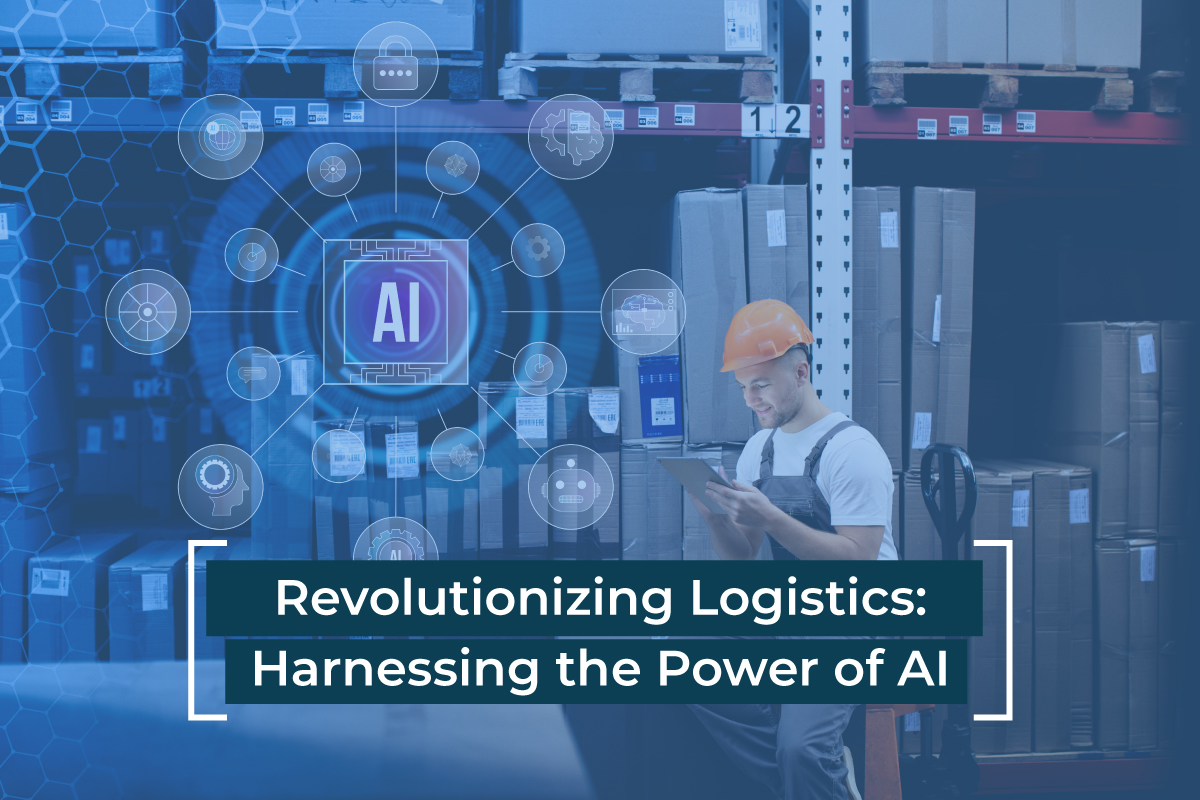

In the ever-evolving realm of logistics, the integration of cutting-edge technologies has become the linchpin of transformative growth. Amidst the wave of innovations, the role of AI/ML development service stands tall, marking a revolutionary overhaul in how logistics operates. Delving deeper into AI Integration services, let’s explore the multifaceted advantages it brings to the logistics sector.
AI Integration refers to the process of incorporating Artificial Intelligence (AI) capabilities into existing systems, processes, products, or services. Essentially, it’s about embedding AI-powered solutions into the broader framework of an organization’s operations, ensuring a seamless blend of conventional processes with advanced AI functionalities. Here’s a breakdown of what AI Integration involves:
AI Integration requires a deep understanding of the specific AI technologies you’re incorporating, whether that’s machine learning algorithms, neural networks, natural language processing capabilities, or other AI components. These technologies are then merged with existing systems.
One of the main fuels for AI is data. Proper AI Integration ensures that there’s a consistent and structured flow of data into the AI systems, allowing them to function optimally. This involves creating pipelines that feed relevant data into AI models and systems.
Simply plugging in an AI model into an existing system isn’t enough. AI Integration ensures that the AI Artificial Intelligence solutions are aligned with the company’s operational objectives and processes. This often requires a re-thinking or adjustment of existing processes to ensure smooth integration.
AI Integration also deals with the interfaces and platforms through which end-users (be it employees, customers, or stakeholders) interact with the AI-enhanced systems. This might involve new dashboards, apps, or even voice interfaces.
Unlike many traditional systems, AI systems often evolve and learn over time. Proper integration ensures that there’s a mechanism for this learning and adaptation to take place, making the AI solutions even more effective over time.
Modern logistics thrives on accuracy. Thanks to AI/ML development service providers, logistic enterprises can now leverage tools that masterfully predict market trends. By analyzing years of data, these AI models not only predict demands but also understand seasonal fluctuations, helping businesses tweak their inventories accordingly. No more excessive stock or stockouts; AI ensures a balanced inventory, leading to minimise wastage and maximized profits.
Every minute counts in logistics. Every shipment delayed can lead to a cascading effect of disruptions. But with AI Integration services, there’s a solution at hand. Vehicles and cargo carriers can chart out the most efficient routes by considering real-time traffic updates, weather forecasts, and road work disruptions. As AI continues its learning curve, these route predictions become even more refined, ensuring deliveries are faster and more environmentally efficient due to reduced fuel consumption.
The backbone of logistics is its fleet and machinery. But what happens when they break down? Losses accrue, and schedules tumble. However, with AI Integration, these sudden breakdowns can be preemptively addressed. AI, by analyzing data from myriad sensors on machinery and vehicles, can predict when maintenance is due or when a part is on the brink of failure. This foresight reduces costly downtimes and enhances the longevity of the equipment.
In an era where information is at our fingertips, logistic companies must find a way to provide timely and accurate updates. AI Integration services cater to this by offering real-time tracking, exact delivery windows, and even notifications about potential delays. But AI’s role doesn’t stop there. It delves into past data, understanding customer preferences, thereby enabling logistic companies to offer tailored suggestions, personalized touchpoints, and proactive solutions to common customer concerns.
Warehouses, often bustling hives of activity, are undergoing an AI Integration metamorphosis. Robot, guided by AI, now manage tasks like picking, packing, and sorting. Their precision is unparalleled, and their capacity to work tirelessly ensures that warehousing operations never hit a lull. As these robots process more tasks, their algorithms evolve, leading to even swiffer operations with minimal errors.
Leveraging AI for logistics means tapping into the potential of artificial intelligence to enhance, streamline, and revolutionize various processes within the logistics domain. From predictive analytics to real-time monitoring, AI can offer solutions that drive efficiency, reduce costs, and improve customer satisfaction. Here’s how businesses can leverage AI for logistics:
AI Integration in logistics isn’t a mere upgrade; it’s a paradigm shift. It promises a future where decisions are data-driven, operations are seamless, and customer satisfaction levels reach unprecedented highs. As logistics businesses transition to this AI-enhanced era, they’re not just streamlining their operations but also carving a niche in a competitive, tech-driven marketplace..
A noticeable change from the usual French manicure is to add red tips to your…
The Trump Organization's online store has ignited a flurry of speculation by offering "Trump 2028"…
Many of us have been there: the credit card bill arrives, and the minimum payment…
Making the right selection in getting genuine Enterprise Resource Planning for the footwear industry is…
Most people associate autism with childhood characteristics which include avoiding eye contact and delayed speech…
The incorrect perception of Autism Spectrum Disorder along with its misrepresentation produces myths that block…